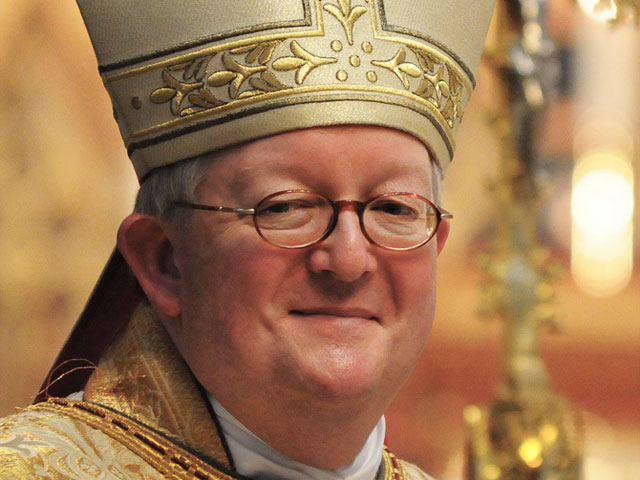“Context is king” is a catch phrase that summarizes the critique offered in many of my posts for Get Religion. The omission of background material or worse still the omission of “why” — why are these people in this story I am reading doing these things — blights many a fine article.
A lack of context often leads to parochialism in reporting. When it comes to faith and morals issues, the New York Times writes its stories from the perspective of its assumed readership, often propounding a dogmatism and incurious worldview of which they seem quite unaware.
Yet there are stories where context can be omitted because it is so ingrained in the common knowledge or experiences of readers. One need not say Hitler was a bad man every time. The trick then is gauging the knowledge point of your readership — knowing when to begin to provide context and when to omit it. This assumes the writer knows his subject — (a third complaint voiced about stories critiqued by Get Religion.)
These musings on the newspaper craft were prompted by a story I read on the front page of Tuesday’s Oslobodenje entitled the “Census takers will come knocking” on the formal launch of Bosnia’s first census since 1991.
But first some context. Oslobodenje is the main Sarajevo daily newspaper and earned an honored reputation within the newspaper community during the 1992-1995 siege of Sarajevo. The paper’s multi-ethnic staff — Bosnians, Serbs, Croats — missed only one day of publishing during the siege and operated out of a bomb shelter for several months after its offices were shelled during the fighting killing five and wounding 25 staffers. In 1993, it was awarded the Sakharov Prize for Freedom of Thought and its editor was awarded the Honor Medal in 1995 by the University of Missouri School of Journalism for its coverage of the war.
The article reports that on Friday census takers will begin canvassing Bosnia, asking each household to fill in the census form. The usual sort of demographic questions will be asked — name, age, sex, occupation, marital status, race, ethnicity, religion, citizenship — etc.
The census director told Oslobodenje the information gathered on individuals would be kept secret — with only the aggregate information released. Government agencies that have detailed access to some of the data will not be able to share it with other branches.
“U procesu obrade podataka, svi individualni podaci ?e biti kriptovani. Ti podaci ?e biti odvojeni od ostalih podataka, iako ?e biti kriptovani. Šifra za kriptovanje ?e biti iz tri dijela, a svaka institucija ?e imati svoj dio šifre i niko ne?e bez ostale dvije institucije mo?i pristupiti podacima”, pojasnio je Milinovi?.
” As the information is gathered, all individual private data will be encrypted . Such data will be separated from other data, although it will be encrypted. The encryption code will be in three parts with each state institution having part of the code, and no one will be able to access data without all three codes,” explained without two other institutions will be able to access data , “explained [Zdenko Milinovic, director of Bosnia-Herzegovina’s Statistical Agency].
The article notes that that Roma (Gypsies) will be counted as a separate category, but I did not see any further mention of special care for religion or ethnicity. And at this point we have the question of common knowledge. A reader from the Anglosphere will have heard of the Bosnian civil war — and the omission of religion from the story about enumerating the people of Bosnia, counting them on ethnic and religious lines — may strike a bad chord.
Will not asking people to state their ethnicity — (Bosnian, Croat, Serbian, or “other”, meaning Roma or hypothetically Jews, though the Nazis assisted by their local allies exterminated the Jewish community) – rekindle the nationalistic religious tensions that tipped the country into war? For the overwhelming majority of people, ethnicity is tied to religion in Sarajevoe — Bosnians are Muslims, Croats Catholic, Serbians Orthodox.
And the promise that the census department will not share your ethnicity with other government agencies should prompt concern, should it not? If the government goes out of the way to tell you it will not do something bad, is that not a sign that you should start to worry. Sharing information does not mean the census department will let the welfare department know that you do not have 12 children for whom you are claiming support — but informing the police that you are a Muslim, Catholic or Orthodox — and this information finds its way to others who may not want your type to remain in Bosnia.
Were this article being written for the Anglosphere these questions would have to be asked in a quality newspaper story. But in Bosnia — who among the population would not know these already?
Is Oslobodenje making an editorial decision to soft-peddle these issues? Is it giving its editorial support to the government and pushing the new happy multi-ethnic Bosnia line? Or, is this something any intelligent Bosnian would already know, and there is no need to belabor these points? What say you Get Religion readers?











